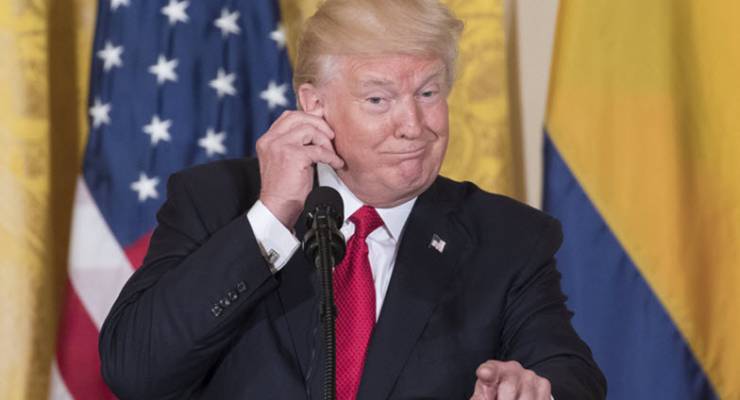
The problem for company tax cut advocates of US firms blowing their Trump tax windfalls on share buybacks is now officially serious: The Wall Street Journal has tried to pretend it’s not a problem at all.
According to recent figures, the level of stock buyback announcements made by corporate America since the start of the year has reached a staggering $214 billion. And just 6% of the windfall is going to workers in bonuses and wage rises.
So what did America’s Murdoch-controlled flagship business publication do? Declare that share buybacks are really good anyway. “Stock buybacks are proof of tax reform’s success“, according to John H. Cochrane of the right-wing Cato Institute.
Share buybacks and dividends are great. They get cash out of companies that don’t have worthwhile ideas and into companies that do. An increase in buybacks is a sign the tax law and the economy are working…
Not every company needs to expand at any given moment… The debate over whether companies will spend higher revenues on wages or buybacks misses the whole point.
You could term this the trickle-down trickle-down argument: give companies a windfall in the hope that they’ll use it for new investment that will eventually flow through into more jobs and put upward pressure on wages; but when they don’t spend it on new investment, instead gifting it back to shareholders, hope that the shareholders then re-invest it another company that will decide to use it for new investment that will eventually flow through yada yada yada.
It would be more efficient simply to give the wealthy another direct tax cut, wouldn’t it? After all, they save so much more of their income than the rest of us so it will eventually trickle into productive investment somewhere. Then we wouldn’t have to worry about share buybacks at all.
Of course, a tax cut for the wealthy was exactly what Trump and the Republicans did as well as the company tax cut in the Tax Cuts and Jobs Act.
And if you look at the long list of US companies that have announced $214 billion worth of buybacks or dividend increases, they include many of the biggest names in global capitalism — Google, Visa, Cisco, Oracle, Boeing, Wells Fargo, Coca-Cola. On the basis of Cochrane’s argument, a huge swathe of global capital simply don’t have any “worthwhile ideas” for investing in at the moment.
Remember that the Trump tax cuts are all unfunded, just like Malcolm Turnbull’s $64 billion company tax cuts. The US deficit is being blown out right when the economy is near full employment, in the hope that wealthy shareholders will take their share buyback and dividend largesse and find a productive home for it.
Now, since the Wall Street Journal has confirmed share buybacks are a problem by trying to define the problem away, will the Financial Review finally acknowledge their existence?








Would Rupert use one of his papers to ‘advertorial-lies’?
(As for Cato? Not the one I know.)
if you give the boss a million he`ll give you a dollar, maybe, thats the case for corporate tax cuts and some of the brainwashed illiterates will actually swallow it.
Turnbull on 7.30 Report tonight said people who argued against the tax cuts were “theorising”, apparently unlike those who have no evidence to back their claims in favour of the tax cuts.
“… will the Financial Review finally acknowledge their existence?”
No.
One can see why Cochrane is paid the big bucks for that painful bit of moral contortionism.
Senior management typically have performance agreements strongly linked to share price. Buybacks force up share prices. Easy bonuses!